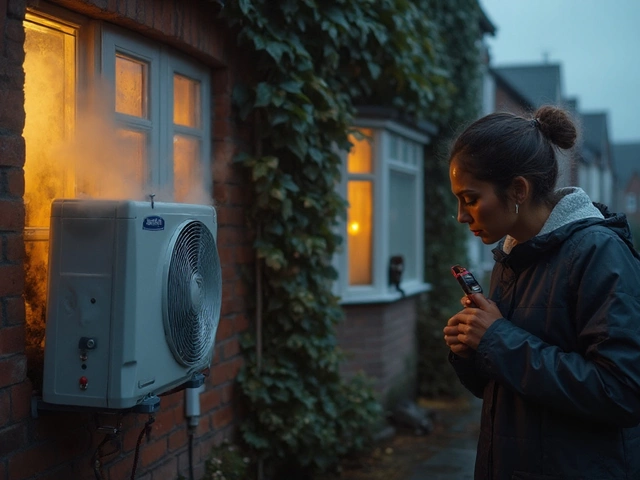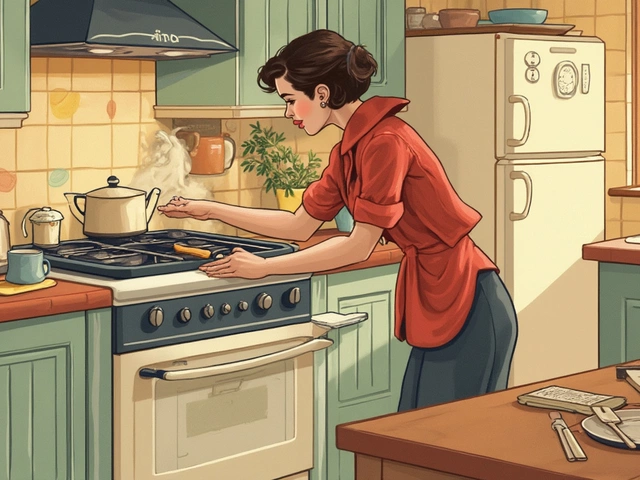How to Tell If Your Heat Pump Needs Replacing (Signs, Costs, Repair vs Replace)
September 13 2025Fix a Fan: Easy Steps to Get Your Extractor Working Again
Fans that stop spinning or make strange noises can be annoying, but most problems are easy to sort out. In this guide we’ll walk through the most common causes, quick checks you can do yourself, and the point where a qualified engineer is the safest bet.
Quick Checklist Before You Pull Anything Apart
First, make sure the fan is actually getting power. Flip the circuit breaker or check the fuse – many fans are on a dedicated switch that can be turned off by mistake. If the switch feels loose or the breaker trips right away, there could be an electrical fault that needs a professional.
Next, look at the grill or cover. Grease and dust build‑up is the number one reason kitchen fans lose suction or stall. Remove the cover (most just clip on) and give it a good clean with warm soapy water. While you’re up there, wipe the fan blades with a damp cloth. A clean fan spins smoother and uses less energy.
Common Fan Problems and DIY Fixes
Fan won’t start. If the motor hums but the blades don’t turn, the motor bearings might be stuck. Lightly tap the motor housing with a rubber mallet – sometimes that frees a seized bearing. If the hum disappears, the motor is dead and needs replacement.
Rattling or wobbling. Loose screws are the usual culprit. Tighten any visible screws on the motor mount and the housing. If the motor itself seems loose, you may need to re‑align it with the mounting brackets.
Odd smells or smoke. Turn the power off immediately. A burnt smell often means a shorted motor winding. This is not a DIY fix – call a certified gas engineer or electrician right away.
Low airflow. Besides a dirty filter, check the ductwork. A kinked or blocked duct will choke the fan. Disconnect the duct and blow air through it; if it’s blocked, clean out the debris or replace the section.
If after these checks the fan still misbehaves, it’s time to consider a replacement. Most modern extractor fans are designed for easy swap‑out, but you’ll need the right size and voltage rating. Keep the old model’s spec sheet handy when ordering a new one.
When to Call a Professional
Electrical work that involves the main circuit, gas‑linked ventilation, or a motor that needs rewinding should be left to a qualified engineer. In Bedford we have certified gas engineers who can safely service and replace fans that are part of a heating system. Trying to fix a fan that’s integrated with a boiler or gas boiler exhaust can void warranties and create safety hazards.
Also, if your fan is more than 10 years old, the cost of a new, energy‑efficient model may be lower than endless repairs. New fans often come with better filters and quieter motors, saving you money on electricity and cleaning time.
Remember, regular maintenance prevents most breakdowns. A quick clean every three months and a visual inspection of the wiring and mountings will keep your fan humming along for years.
So, next time your kitchen or bathroom fan sputters, run through the checklist, try the simple fixes, and know when it’s safer to call an expert. A well‑kept fan means better air quality, less moisture, and a healthier home.
 25 Jul
25 Jul
How to Fix a Fan That Stopped Working: Step-By-Step Troubleshooting Guide
Fan not working? Learn how to troubleshoot and repair your fan with detailed, simple advice from real-life experience. No tech jargon—just practical help.
Read More...



